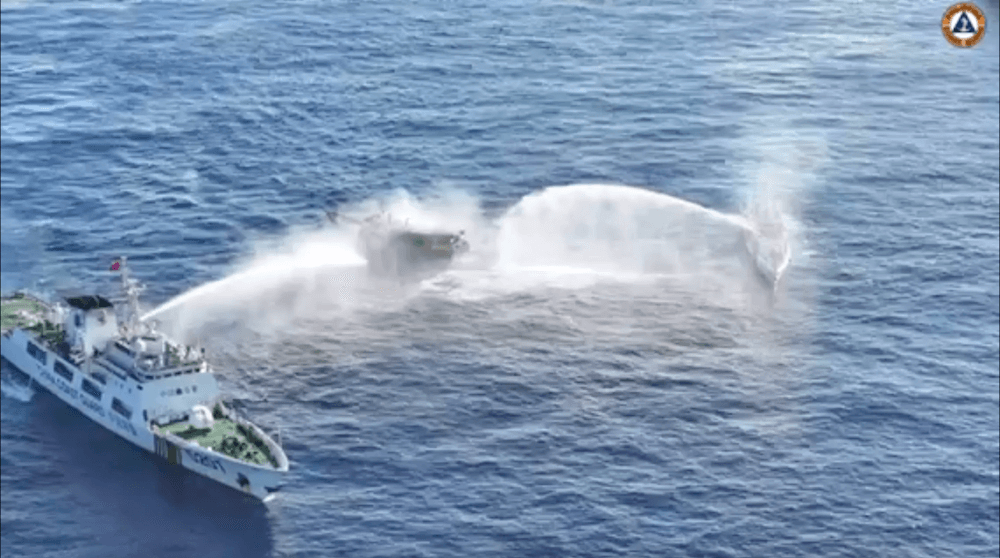SUMMARY
This is AI generated summarization, which may have errors. For context, always refer to the full article.

MANILA, Philippines – The Philippines’ defense department reminded its Chinese counterpart on Friday, March 29, that Filipinos are not the “aggressors” in the South China Sea.
“The world has seen and knows that the Filipino people are not aggressors. We will never seek a fight or trouble. Neither will we be cowed into silence, submission, or subservience,” the Department of National Defense (DND) said in a statement.
The DND was reacting to China’s defense ministry, who said in a statement on Thursday, March 28, that Manila’s “harassment and provocations [were] the immediate cause of the recent escalation of the South China Sea issue.”
“China’s defense ministry statement clearly reflects their isolation from the rest of the world on their illegal and uncivilized activities in the West Philippine Sea. It also shows the inability of the Chinese government to conduct open, transparent, and legal negotiations. Their repertoire consists only of patronizing and, failing that, intimidating smaller countries,” said the Philippines’ defense department.
The Chinese defense ministry’s statement was released to media in Manila shortly after President Ferdinand Marcos Jr. announced a “countermeasure package” in the face of China’s “open, unabating, and illegal, coercive, aggressive, and dangerous attacks.”
Marcos, in a post on his social media accounts, said the plan was a result of meetings with Philippine defense officials, as well as communication with allies in the international community.
The Philippine President, in his statement, added: “We seek no conflict with any nation, more so nations that purport and claim to be our friends, but we will not be cowed into silence, submission, or subservience. Filipinos do not yield.”
The latest exchange between the two Asian countries are indicative of rising tensions between Manila and Beijing over activities in the West Philippine Sea, which includes the Philippines’ exclusive economic zone in the South China Sea.
China insists practically the entire South China Sea is theirs, ignoring a 2016 arbitral award that deemed this claim illegal.
Under Marcos – in direct contrast to his predecessor, Rodrigo Duterte – the Philippines has been more assertive in protecting its sovereign rights in the West Philippine Sea, as well as exposing China’s harassment whenever Filipinos conduct missions in those waters.
Last Saturday, March 23, three soldiers were hurt and a civilian supply ship was badly damaged after the China Coast Guard used water cannons against the smaller Unaizah May 4. Just weeks before, the same wooden supply ship was damaged for the same reason.
But the March 2024 incidents in the West Philippine Sea are only the latest in a long list of maritime confrontations between the two countries. The Philippines has reported collisions, dangerous maneuvers, and blocking attempts, particularly during missions to bring supplies to a military outpost in Ayungin Shoal, as well as attempts to bring supplies to fisherfolk in Scarborough Shoal.
Both features are just a little over 100 nautical miles from Philippine shores.
Under Marcos, too, the Philippines has upped defense ties with its allies and partners – most notably the United States, which China accuses of “interference” in the South China Sea. Marcos has repeatedly said issues in the South China Sea must be viewed beyond the lens of the US-China competition, and as the Philippines’ assertion of its own interests.
China has also lashed out at journalists who join Philippine missions to Ayungin Shoal, claiming “manipulation” of video and reports. Journalists in the Philippines have hit back, calling Beijing’s allegations a “barefaced lie.” – Rappler.com
Add a comment
How does this make you feel?




There are no comments yet. Add your comment to start the conversation.